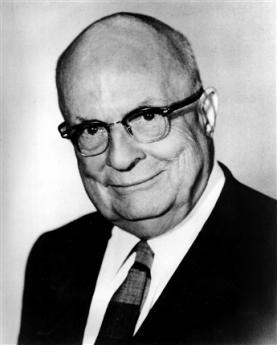Related Topics
Reflections on Impending Obamacare
Reform was surely needed to remove distortions imposed on medical care by its financing. The next big questions are what the Affordable Care Act really reforms; and, whether the result will be affordable for the whole nation. Here are some proposals, just in case.
Unfair Income Tax Incentives
Now that health insurance has been mandated for everyone, it is an unnecessary irritant that some taxpayers will escape income tax for the amount of their premiums, while others will not, all based on what type of employer they have. While this inequity has been present for a long time, it necessarily changes character when the purchase of universal health insurance becomes a legal requirement. It looks as though some self-employed person will have to take this case of unequal justice under the law, all the way to the U.S. Supreme Court; and it is pretty hard to imagine arguments that would defeat the case.
This particular feature of our national health insurance muddle is now nearly seventy-five years old. It shows no sign of improving, although its solution would be very simple. The story of how Henry Kaiser during World War II enticed steelworkers to his California factories by evading wage and price controls is completely documented, widely understood, thoroughly deplored -- and seemingly impossible to change. When a book called The Decline and Fall of the American Empire is eventually written by a new Edward Gibbon, this situation might well be cited as an example of the inability of Americans to govern themselves.

|
| Henry Kaiser |
For those too young to remember, Kaiser was given a temporary exception to wartime wage and price controls by the War Production Board. He could buy health insurance for his employees, using his gift to entice East Coast steelworkers to move to his California shipyards. His company naturally took a tax deduction itself for the business expense, but somehow it was considered a forgivable ruse to skip withholding taxes for this virtual salary increase, and ultimately to skip income taxes entirely on this "fringe benefit". The maneuver was quickly copied throughout American industry. Although an attempt was made after the war to bring this legalized tax evasion to a halt, Congress discovered one political party supported Union labor, the other political party supported big business, and both of them urged the government to continue the contrivance against the rest of the public. Meanwhile, the war was over, but self-employed or unemployed citizens who asked to share it were denied the same right. Effectively, wages had been made higher for employees of large corporations than for the rest of the country, labor costs were made lower for their employers, and the arrangement was continued after the War had ended. Over the course of seventy subsequent years, there has never been a successful attempt to correct this inequity, which is turned back by the bellicose stance of organized labor to stand by its principle of never giving up any benefit, once it has achieved it. Management is generally more cheerful in defending this anomaly, but no less grim in its determination to retain it. Each of these combatants is happy to have the other side lead the fight and take the blame, but their positions are identical. Their true feelings are displayed in establishing a threshold limit of 7.5% of gross income for the tax deductibility of health care costs for everybody else. When the matter was last debated in Congress, the threshold was defiantly raised to 10%.

|
| US War Production Board |
The importance of the resulting inequity cannot be exaggerated. Subsequent enlargement of this tax beachhead into pensions and related fringe benefits has achieved a rough average of 35% of salaried income in big business, reinforcing the determination to protect it. However, this is probably not the way Big Business primarily looks at it. America has worked itself into a 60% combined state and federal income tax on corporations, consequently driving many corporations to relocate headquarters in countries like Ireland, with 12.5% tax. The Henry Kaiser tax abatement reduces employee costs about 15%, or well over a thousand dollars per employee. Since major employers have thousands of employees, the reduction of their costs brings an aggregate tax abatement to the employer in the many millions. The resistance of large employers to eliminating the Henry Kaiser tax abatement has many sources, but this looks to be the important one, by itself quite sufficient to convince almost any Board of Directors to acquiesce.
And thus, to sustain the employer-based model for health insurance in spite of its Job-lock implications. Congress sees it as too expensive to extend the same tax preference to those who are excluded, and too politically dangerous to take it away from those who have it. In a sense, Congress has a conflict of interest, because it reduces the effective cost of government employees. Two solutions are obviously quite simple: give the deduction to everyone, or else take it away from everyone. Meanwhile, this fraternity of tax-avoiders makes it virtually impossible for big corporations to get out of the employee health insurance business, encourages unhealthy fraternization between Human Resources executives and health insurance salesmen, raises the premiums of health insurance by roughly 30% for those who can least afford that cost, and supports the outlandish incomes of health insurance executives, once they have disposed of their inconvenient non-profit status. It cannot even be said that closing this tax inequity is a side benefit of mandatory insurance since it seems to have survived the enactment of Obamacare.
However, recognition of corporate income tax effects on "inversion", puts the matter as one of national interest in reducing the incentive for major corporations to move abroad, which would be a decisive argument almost anywhere but in a violently divided Congress. One would not blame Congress for studying the other unintended side effects of lowering corporate taxes one way or another, even though they have slid gradually into this situation over seventy years. Nor could one much blame the corporate CEOs from deciding to keep quiet about an issue so much in their present favor. But this is an election-deciding issue under certain circumstances, and it will be no respecter of persons if some candidate decides to make an issue of it.
Since the elimination of tax "loopholes" has become one of the foundations of other proposed tax reforms, there was some hope this parallel reform movement might overlap with healthcare insurance reform, since the "loophole" was really created for circumstances which have long disappeared. Many of the surprising quirks of the health insurance system today can be traced to Henry Kaiser's little scheme of the 1940's. And many quirks would probably inexplicably disappear if this particular tax situation reverted to something equitable. For instance, if you are looking for the explanation for strange behavior by employees, it is called "Job lock", and it is a creature of this tax law. If you lose your job, you lose your health insurance, and if you choose the wrong sort of new employer, you lose the tax deduction. Health insurance remains a one-year term system, and therefore scarcely anyone can envision the potential for permanent lifetime insurance, with internally compounded interest income, such as is seen in whole life insurance. To understand the consequences, just imagine being told you would lose your life insurance if you changed jobs.
Originally published: Tuesday, May 28, 2013; most-recently modified: Monday, June 03, 2019